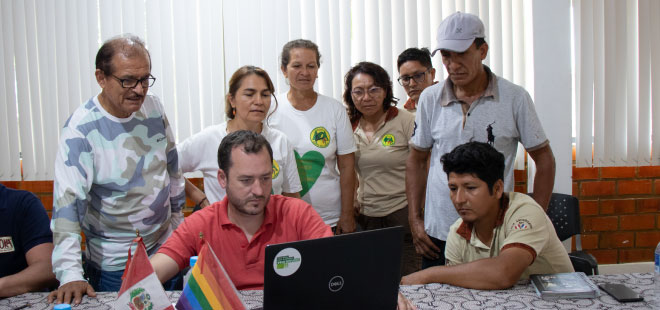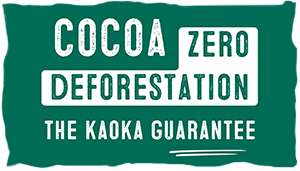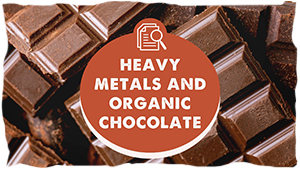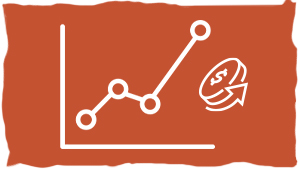What adjustments are needed for the new European Union organic regulation?
Since 1 January 2025, the system for importing organic products into the European Union has been redefined by a new organic regulation. This regulation standardises the rules and quality standards between imported products and those produced in the European Union. One of the main changes concerns the certification of growers groups, which will have to undergo significant organisational and legal changes in order to continue exporting to the European market.
These necessary changes come at a difficult time: rising costs due to inflation, price pressure, and declining sales of organic products to Europe. This additional adjustment is all the more difficult for small cocoa and coffee growers organisations, which are already facing the requirements of the European regulation against imported deforestation.
Compliance with the new organic regulation (EU) 2018/848 also has financial implications for the value chain, linked to increased certification costs.

The objectives of the new European organic regulation (EU) 2018/848 are to encourage the sustainable development of organic production in the EU, ensure fair competition for EU farmers and operators, prevent fraud and unfair practices, and improve consumer confidence in organic products.
For third countries, it brings a fundamental change to the regulatory approach, moving from the principle of equivalence to the principle of compliance.
From the principle of equivalence to strict compliance
To support organic production of raw materials in third countries and promote their import into the EU, the previous European regulation provided for an equivalence system. Following trade agreements, some countries were recognised as ‘equivalent countries’. In other countries, inspection and certification were the responsibility of independent control bodies recognised by the European Commission, based on their own organic standards applicable in third countries, which were consistent with organic farming and equivalent to the regulations.
From now on, with the new European regulation, third-country growers will have to comply exactly with the same rules as EU growers.
Note 70% of the EU's organic cocoa imports are produced and certified by small groups of cocoa growers.
New requirements for third-country operator groups
A wide range of organic raw materials for the European market are mainly produced by small farmers in third countries who are certified as organic “ growers’ groups”.
In order to overcome the administrative complexity for small growers to obtain certification in their own name, the previous European Regulation No. 834/2007 provided for group certification, which allowed cooperatives to hold the certification. The latter were required to set up an internal control system (ICS). This internal control system was verified by third-party certification bodies, which also carried out visits to around 2% of growers.
Major changes have been made by the new European Regulation No. 2018/848 in terms of group certification.
Each group of operators must now meet the following criteria in order to be certified:
- A maximum of 2,000 members per organisation
- Each member must:
– be an organic grower or in the process of converting to organic farming
– farm a maximum of 5 hectares or have a turnover of less than €25,000 - Have legal personality
- Have a common marketing system
- Establish and implement an internal control system (ICS)
The consequences for small growers
Growers who farm more than 5 hectares or have a turnover of more than €25,000 will have to obtain certification in their own name in order to continue exporting their organic cocoa to the EU. However, these criteria, established in 2018, are no longer appropriate in the current context, particularly with regard to turnover. For more than a year now, cocoa prices have been very high, meaning that growers with high-yield plantations are quickly reaching this threshold.
This poses a twofold problem. On the one hand, these exceptional price levels exclude growers from cooperative certification. However, growers’ situations can change from one year to the next (poor harvests, falling cocoa prices), making them eligible once again for group certification.
On the other hand, faced with administrative complexity, a large number of growers exceeding these criteria may choose not to seek certification and to sell their cocoa on the conventional market, especially since the latter currently offers attractive prices. A grower who abandons organic certification will have to re-enter a three-year conversion cycle if they wish to be certified as organic again.
The consequences for growers’ groups
To maintain their organic certification, cooperatives also face cumbersome administrative procedures: the need to split cooperatives into several entities to comply with the maximum number of 2,000 growers, exclusion of members who do not meet the criteria, etc.
Due to a lack of support or resources, many organisations in third countries have not anticipated the new requirements of European organic regulations. If they are unable to renew their certification before 15 October 2025, they will no longer be able to export organic products to the EU.
In a context where conventional market prices are high, we are seeing a number of cooperatives withdrawing from organic certification.
The impact on the organic market
Increase in certification costs
The new Regulation No. 2018/848 also provides for an increase in the number of growers inspected as part of the audit for group certification, from around 2% to 5%. Auditors will also be required to take samples from plantations from 2% of growers. This intensification of controls will contribute to an increase in the number of audit days.
Example of the cocoa program in Kaoka, São Tomé
EU Regulation No. 834/2007
- 1 cooperative for approximately 3,000 growers
- Physical audit in 2024:
- 1 auditor for 20 days of auditing
- Cost = approximately €13,000
EU Regulation No. 2018/848
- 2 cooperatives: 1 export cooperative with 2,000 growers and 1 cooperative with 1,000 growers
- Physical audit in 2025:
- 2 auditors for 50 days of auditing
- Cost = approximately €30,000
Inflation in organic products
With the supply of organic raw materials likely to decline, prices are likely to rise. Coupled with an increase in additional costs linked to new regulations (certification costs, transfer costs, charges), we are likely to see inflation in organic products. In an already inflationary environment, will organic consumption keep pace?
Supply difficulties
In an environment increasingly polluted by chemical inputs, it is becoming more and more difficult to produce raw materials in organic farming that meet the required standards. Increased controls are slowing down the marketing of raw materials. This slowdown, coupled with a lack of availability of materials due to certain organic growers renouncing organic certification and the impact of climate change on harvests, is likely to cause serious supply difficulties for organic processors in France and Europe.
A lack of organic cocoa on the EU market is already noticeable -40% of organic cocoa imports into the EU between 2022 and 2024.

Thanks to this integrated cocoa program model, characterised by our close relationship with grower cooperatives, we have been able to support them in achieving compliance and thus anticipate the implementation of the new organic regulations.
Sources
(1) FiBL | Impact of the New EU Organic Regulation on Smallholder Value Chains and the European Organic Sector, octobre 2024




